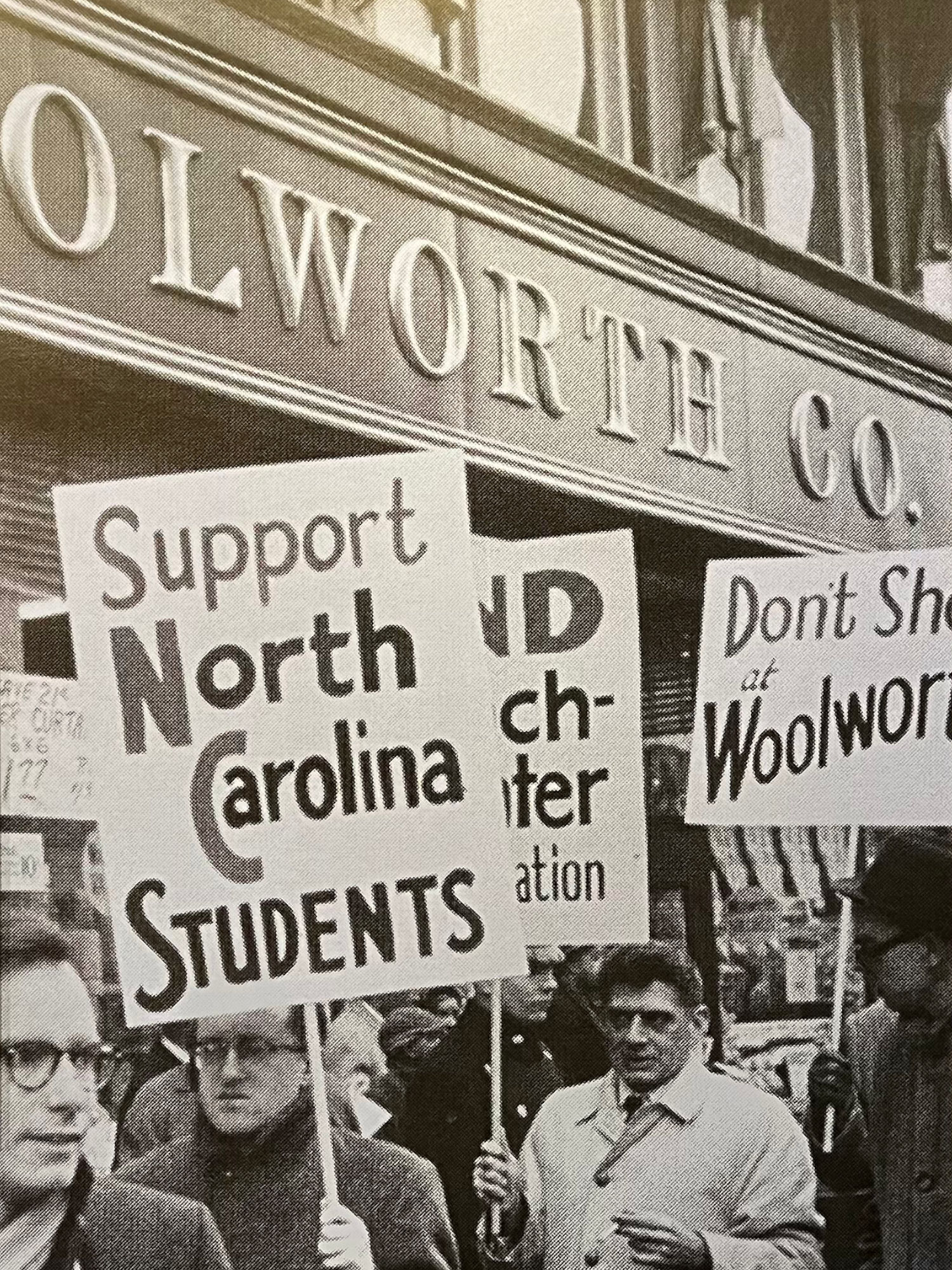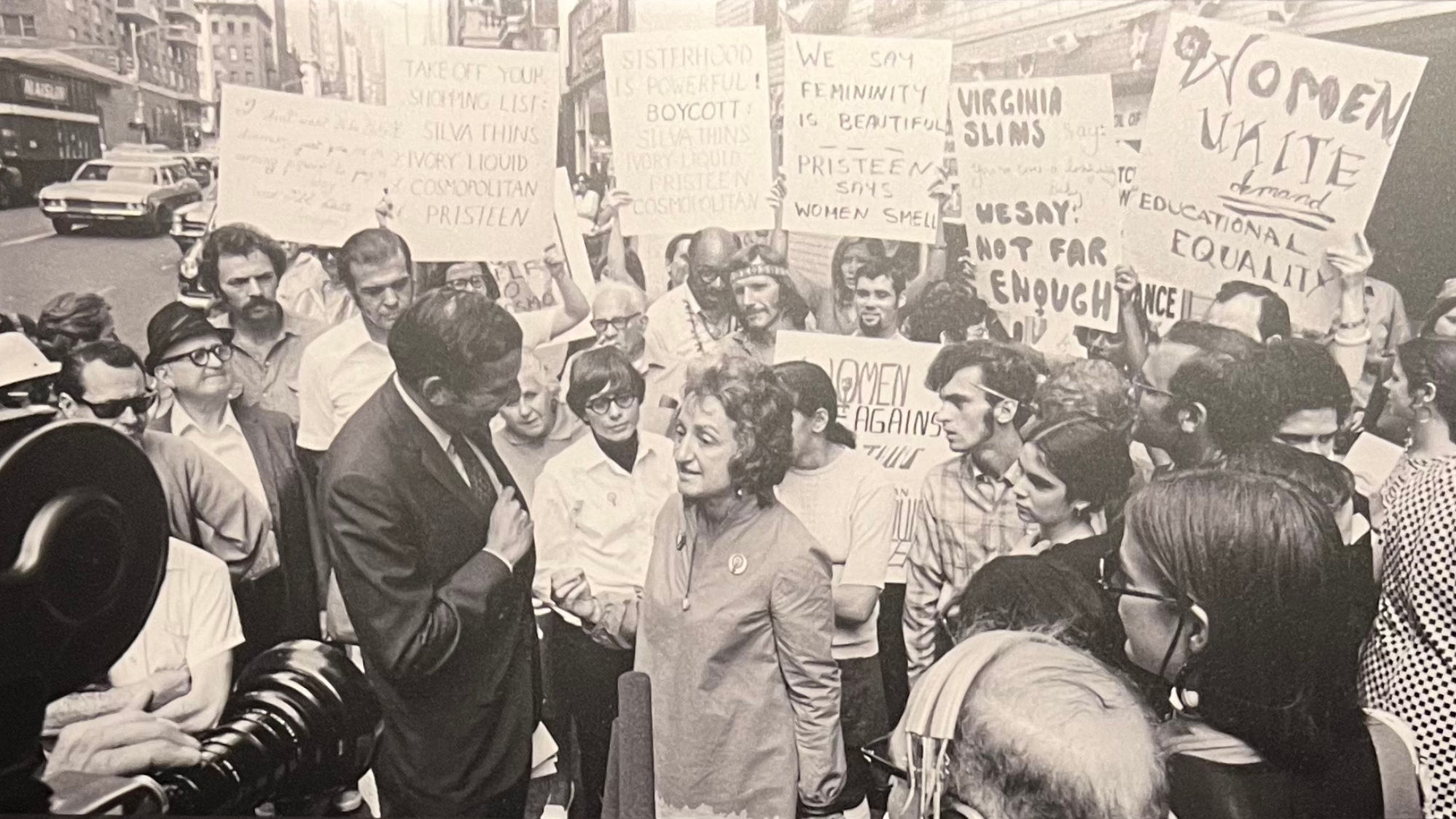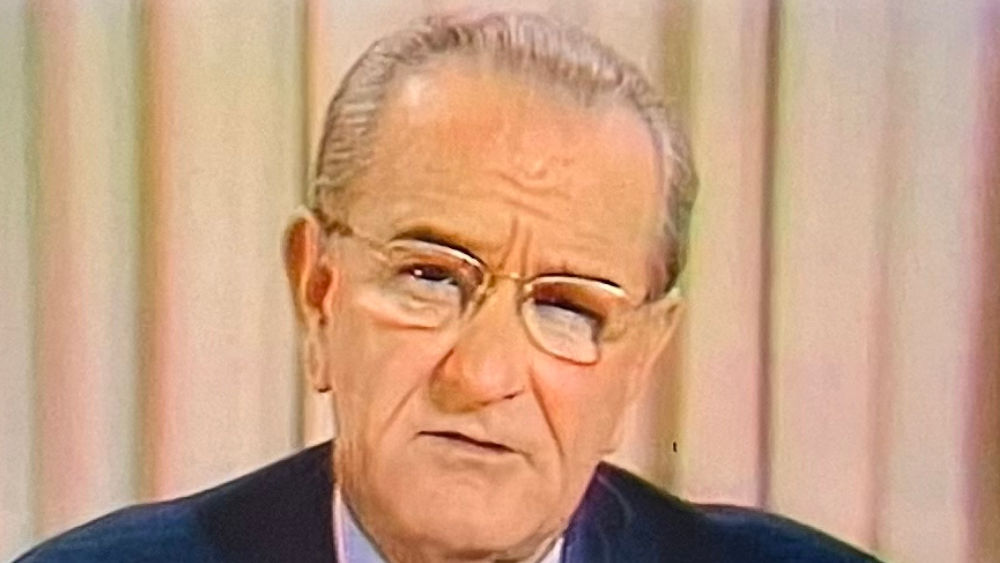When Richard Nixon was sworn in on January 20, 1969, he became President of a nation that was experiencing dramatic social and political upheaval.

- February 2, 1960 - Students stage a sit in at Woolworth's lunch counter in Greensboro, NC.
In 1960, four African American students refused to leave a "whites only" lunch counter in Greensboro, NC. This non-violent protest became one of the landmark moments of the Civil Rights movement of the 1960s.


- October 22, 1962 - President John F. Kennedy announces the naval blockade of Cuba in a televised address.
President John F. Kennedy, upon learning that the Soviet Union was moving nuclear missiles to Cuba, just 90 miles off the coast of Florida, publicly insisted that the weapons be removed. The world waited anxiously until a deal was struck, and the Soviets removed their weapons while the United States removed its Jupiter missiles from Turkey.

- Feminist and author Betty Friedan takes part in a march for women's equality in New York City
Betty Friedan's provocative 1963 bestseller, The Feminine Mystique, critically examined the life of women in suburban America. It served as a rallying cry for the burgeoning second-wave feminist fight for greater equality in both domestic and vocational spheres.

- Mourners grieve at the funeral for victims of the 16th Street Baptist Church bombing in Birmingham
A bomb placed by members of the Ku Klux Klan at the 16th Street Baptist Church in Birmingham, AL, took the lives of four young African-American girls in September 1963. This senseless act of terror spurred national outrage and helped to build support for the Civil Rights Act of 1964.

- New York commuters read the news of President John F. Kennedy's assassination, November 22, 1963.
The shots that rang out on a sunny Friday afternoon in Dallas left America shaken by the sudden murder of President John F. Kennedy and moved by the grief and dignity of his young widow and children.
From Dallas, Texas, the flash, apparently official: President Kennedy died at 1:00 p.m. Central Standard Time, 2:00 Eastern Standard Time, some 38 minutes ago.- CBS News Anchorman Walter Cronkite, November 22, 1963

- A weary-looking President Johnson prepares an address on Vietnam in the Cabinet Room of the White House.
Their purpose was to defend that U.S. ally against military forces that sought to unify all of Vietnam under the Communist government of the Democratic Republic of Vietnam (North Vietnam).
Relying on Congress's 1964 Gulf of Tonkin resolution, President Johnson had increased American forces to 200,000 by the end of 1965. That number would nearly triple to 550,000 by the time Richard Nixon became President in January 1969.
United States' involvement in Vietnam became the defining issue of Lyndon Johnson's Presidency.
Our purpose in Vietnam is to prevent the success of aggression. It is not conquest; it is not empire; it is not foreign bases; it is not domination. It is, simply put, just to prevent the forceful conquest of South Vietnam by North Vietnam.- March 31, 1968

- July 25, 1967 - Fires burn and police stand guard after riots in Detroit

- January 1968 - A tank rolls through the streets of Saigon during the Tet Offensive.
Although the communist offensive was unsuccessful, it led President Johnson and the American public to reassess the resolve and capabilities of the communist forces, leading to deeper questioning of America's involvement in the war.

- April 4, 1968 - Civil rights leader Andrew Young (left) and others point in the direction that the shots were fired, as Dr. Martin Luther King Jr. lies dying on the 2nd floor balcony of the Lorraine Motel in Memphis.
The Rev. Dr. Martin Luther King Jr. — the Nobel Peace Prize-winning civil rights leader - was gunned down by a sniper on April 4, 1968, in Memphis. As news of King's violent death spread across the nation, riots broke out in dozens of American cities.

- April 1968 - Protesters march in Memphis after the assassination of Martin Luther King Jr.


- Reporter Mike Wallace is escorted off the Democratic National Convention floor following a fight between delegates and security officers.
Joining Senator Eugene McCarthy, Senator Robert F. Kennedy, brother of the late President, entered the race, with Vice President Humphrey declaring his candidacy shortly after Johnson pulled out. Three months later Senator Kennedy was assassinated.
At the Democratic National Convention in Chicago in August, thousands of demonstrators gathered to protest the war and other issues.
Millions of Americans watched on television as the Chicago police clashed with anti-war demonstrators, while Federal troops and members of the Illinois National Guard were ready for deployment if needed.
Humphrey was nominated on the first ballot, but the violence outside underscored the Democratic Party's disarray.
I shall not seek, and I will not accept, the nomination of my party for another term as your President.- March 31, 1968

- March 31, 1968 - President Lyndon B. Johnson announces that he will not seek or accept the Democratic Party's nomination for re-election as President.

- Vice President Hubert Humphrey acknowledges his supporters at the Democratic National Convention in Chicago

- August 8, 1968 - Having won the Presidential nomination at the Republican National Convention in Miami, Richard Nixon and his family greet the delegates.


After winning every primary he entered, Richard Nixon captured the Republican Presidential nomination on the party convention's first ballot. His opponents were the Democratic nominee, Vice President Hubert H. Humphrey, and George Wallace, the segregationist former Democratic Governor of Alabama, who ran as a third-party candidate.
Nixon criticized the record of the Johnson-Humphrey administration while offering his own solutions to the nation's ills. Pledging to restore "law and order" to America's streets, Nixon also promised an honorable end to the Vietnam War. Humphrey, meanwhile, had to distance himself from the Administration's Vietnam policies without appearing disloyal to the President he served. Instead Humphrey focused on his intention to build upon Johnson's domestic achievements in the "Great Society" programs and the war on poverty.
America is in trouble today not because her people have failed but because her leaders have failed.



- On the morning after his 1968 victory, President-elect Nixon holds a crewel-work Presidential seal made for him by his daughter Julie during the campaign.
In the popular vote, Nixon beat Humphrey by 43.4 percent to 42.7 percent, with Wallace capturing 13.5 percent. The narrow margin actually translated to a large victory in the Electoral College: Nixon 301 votes, Humphrey 191, and Wallace 46.

The simple things are the ones most needed today if we are to surmount what divides us and cement what unites us. To lower our voices would be a simple thing.
- January 20, 1969
In these difficult years, America has suffered from a fever of words ... We cannot learn from one another until we stop shouting at one another.
- January 20, 1969









